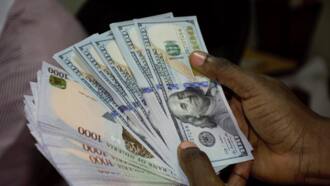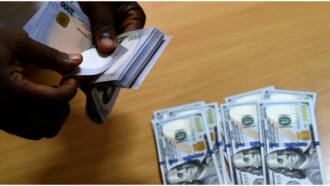- The Central Bank of Nigeria is making changes to the operation of the Nigerian foreign exchange market
- To help Nigerians better understand the ongoing changes, the apex bank has released a list of key points to note
- The changes by the CBN have resulted in a significant fall in the value of the naira in both the official and unofficial foreign exchange markets
In the last few days, the media has been abuzz with discussions surrounding the performance of the Nigerian currency, the naira, in the foreign exchange market.
Terms like “Naira float” and “Investors and Exporters window” have been regularly used in reports on the forex market.
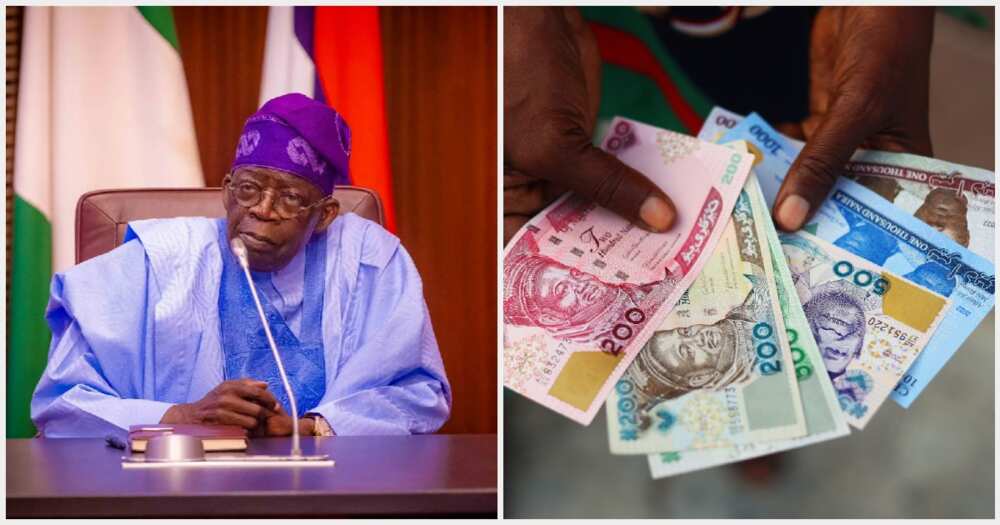
Photo credit: Presidency
Source: Facebook
It all began on Monday, May 29, 2023, following President Bola Tinubu’s inaugural speech, where he announced plans to drive economic reforms.
Specifically, he mentioned a house cleaning in the Central Bank of Nigeria (CBN) and unifying various foreign exchange rates.
PAY ATTENTION: Share your outstanding story with our editors! Please reach us through [email protected]!
True to his words, Tinubu not only suspended Godwin Emefiele as the CBN governor a few days later, on June 14, 2023 but the announcement floating the naira was made.
Naira float and drop in value
The announcement led to a sharp depreciation in the value of the naira in the foreign exchange markets, and many Nigerians who had little or no idea of what was going on felt lost.
Legit.ng reported that on Wednesday, June 21, 2023, the value of the naira dropped by over 95.91% at the official market, trading as high as N815 compared to N416 it exchanged before the naira float announcement.
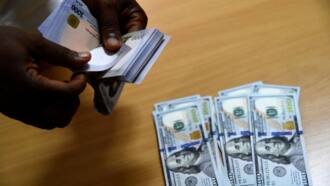
Read also
Naira makes slight recovery after exchanging at N815 against dollar at official forex market
As at Thursday, June 22, 2023, FMDQ data shows the naira continued its free fall against the US dollar, losing N1.76 or 0.26% of its value to close at N765.13/$1, in contrast to Wednesday’s rate of N763.17/$1.
While Nairarates reports that Nigerian currency is exchanging at N992 to one British pound at the black market.
Here are the key changes that the CBN wants Nigerians to know
To address the lack of clarity, the CBN provided a list of questions and answers to shed light on the ongoing operational changes in the foreign exchange market.
Naira float
Floating the naira means that the CBN has allowed market forces to determine the exchange rate of its currency.
With the floating exchange rate, buyers and sellers in the official FX market can quote rates they find comfortable, as opposed to the previous practice of the CBN determining the rates.
However, in a recent interview with Bloomberg CBN Deputy Governor Kingsley Obiora revealed that it is not a free float but a managed float
This means that the CBN still plays a minimal role in the FX market and will intervene when necessary.
Collapse of Segments
All eligible foreign exchange transactions will now be conducted exclusively through the Investors’ and Exporters’ (I&E) window. Other official windows will cease to exist.
Functioning of the I&E Window:
The Investors and Exporters window will serve as the only official foreign exchange market and will operate on a willing buyer, willing seller system, where entities seeking foreign exchange connect with those willing to sell at an agreed price through authorized dealers.
Willing Buyer, Willing Seller model
Rates in the I&E (Investors’ and Exporters’) window are mutually agreed upon by both parties involved in the transaction. This means that Participant A can buy a dollar at N750, while Participant B can buy it at N780.
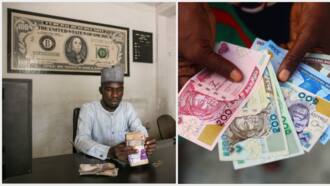
Read also
Naira bounces back as dollar exchanges same rate in official and black markets first time in 8 years
The specific rate depends on the dynamics of the transaction, including who is buying and who is selling, as well as the quantity involved.
Forex access for students
Accessing BTA, PTA, Medical, and School Fees: Personal travel allowances (PTA), business travel allowances (BTA), and other invisible transactions will still be accessed through banks at the prevailing market rate.
There are no changes in the application process for accessing foreign exchange. All applications must go through banks, and documentation requirements remain the same.
CBN website exchange rate
While the CBN regularly posts exchange rates on its website, these rates may not reflect the exact value of the naira.
The rates displayed on the website represent the weighted average rate, which is calculated by summing the volume of foreign exchange traded multiplied by the various rates at which the deals are concluded, and then dividing that by the total trade volume.
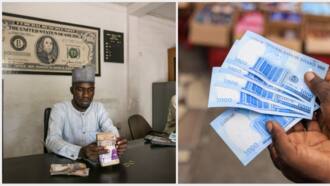
Read also
“N800/$”: Black market traders sell dollar cheaper than banks as exchange rates near convergence
Therefore, the rates shown on the website provide a general indication of the market’s average exchange rate, rather than the specific value of the naira.
43 non-eligible items
CBN reveals that it will not allow importers of 43 items access to forex from the official market. This decision effectively means that importers of these items will have to rely on the black market to meet their foreign currency needs.
The full list of the items can be found here.
After 18 days of Tinubu’s presidency, Nigeria’s foreign reserves hit 2-year low
Meanwhile, in another report, Legit.ng revealed that Nigeria’s foreign reserves are declining very fast, and they are currently at one of their lowest after shedding $600 million in the first few days of President Bola Tinubu’s government.
Nigeria’s foreign reserves comprise foreign banknotes, deposits, bonds, treasury bills and other foreign government securities.
Foreign reserves are an essential tool for the Central Bank of Nigeria in providing buffers for the Naira.
Source: Legit.ng


